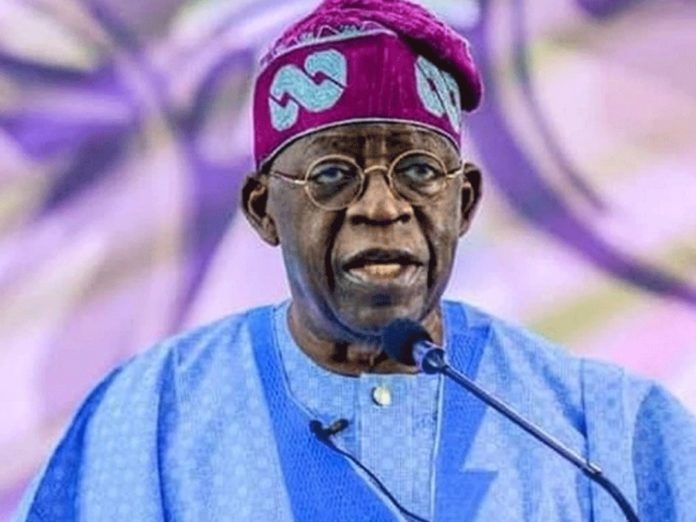Africa
Tinubu’s Economic Reforms And The Political Storm -By Princess Jane Simon
At its core, the issue is not simply about economics—it is about political legitimacy. Can Tinubu weather the storm long enough for his reforms to yield visible benefits? Or will the mounting political opposition undermine his presidency before the policies bear fruit? These questions dominate Nigeria’s political space today, making the reforms not just an economic gamble but a political battlefield.

The current political discourse in Nigeria is dominated by the storm surrounding President Bola Ahmed Tinubu’s economic reforms, particularly the removal of fuel subsidy and the floating of the naira. While the administration has consistently defended these measures as bold steps towards long-term stability, the immediate consequences have triggered political unrest, with opposition figures and civil society groups questioning the government’s capacity to manage the fallout.
The removal of fuel subsidy, a policy past administrations feared to touch, was announced on Tinubu’s inauguration day. Supporters hailed it as a necessary move to free up trillions of naira for investment in infrastructure, healthcare, and education. Yet, for the ordinary Nigerian, it translated into skyrocketing fuel prices, higher transport costs, and a sharp rise in the price of food and essential commodities. The opposition has seized on this hardship as evidence of governmental insensitivity.
Beyond the economic implications, the subsidy removal has become a political weapon. Critics argue that Tinubu failed to cushion the impact adequately before implementing the policy. Labour unions have staged protests, and calls for nationwide strikes loom large. For a country already grappling with insecurity, mass unemployment, and inflation, the reforms risk widening the gap between the political elite and ordinary citizens.
The floating of the naira has added anotherr layer of political heat. The Central Bank of Nigeria’s decision to unify exchange rates was meant to attract foreign investment and stabilize the forex market. Instead, the naira has plummeted, fueling inflation and further diminishing citizens’ purchasing power. Opposition politicians are now using these outcomes to portray the ruling party as reckless and disconnected from reality.
Within the ruling All Progressives Congress (APC), cracks are also becoming visible. Some lawmakers worry about the political cost of defending these reforms ahead of future elections. Their dilemma reflects a broader tension between economic rationality and political survival—a tension that defines Nigeria’s democracy at this moment.
What makes this issue particularly burning is its human face. From markets in Kano to bus stops in Lagos, Nigerians express daily frustration with policies that seem abstract but impact their livelihoods directly. This discontent fuels resentment, which political opponents harness to question the legitimacy of Tinubu’s mandate and the credibility of his government.
The administration insists that palliatives are on the way, but the pace has been slow, and skepticism runs deep. For many, promises of relief do not match the urgency of their suffering. Politically, this has given rise to renewed popularity for opposition leaders who position themselves as champions of the masses. The Peoples Democratic Party (PDP) and Labour Party (LP) have found new grounds to mobilize against the ruling party.
Internationally, the reforms have attracted cautious praise. The IMF and World Bank have applauded Tinubu’s boldness, but such endorsements often ring hollow in the ears of Nigerians struggling to afford bread and transport. This disconnect between external validation and local hardship further complicates the political debate, deepening mistrust in the government.
At its core, the issue is not simply about economics—it is about political legitimacy. Can Tinubu weather the storm long enough for his reforms to yield visible benefits? Or will the mounting political opposition undermine his presidency before the policies bear fruit? These questions dominate Nigeria’s political space today, making the reforms not just an economic gamble but a political battlefield.
In conclusion, Tinubu’s reforms represent a test of political will versus public patience. The coming months will determine whether Nigerians endure the pain in anticipation of gain, or whether the political backlash forces the government into retreat. What is certain is that this burning issue will define the trajectory of Nigeria’s politics for years to come.
Princess Jane Simon is A 300 Level Student From Mass Communication Department University Of Maiduguri.






















